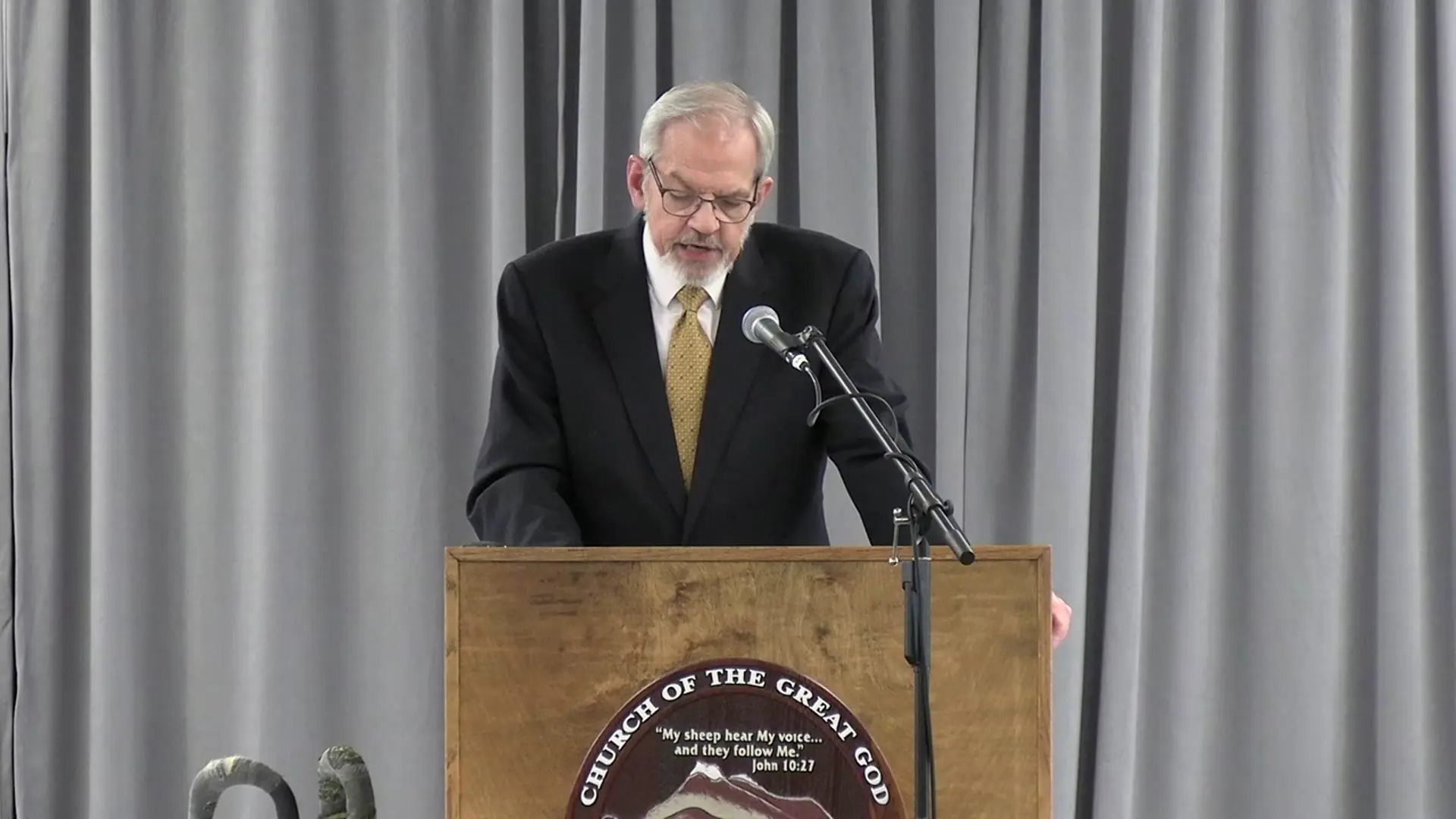Filter by Categories
144,000 of the Tribes of Israel
Sermonette by David C. GrabbeThe attributes of the 144,000 in Revelation 7 and 14 are found in prophecies of Israel, indicating that a humbled remnant of Israel will turn to God.
The Doctrine of Israel (Part Ten): Where Is Israel Today?
Sermon by Richard T. RitenbaughNo matter how scattered Israel is, God will not lose the smallest grain. Using Jerusalem as a reference point, Israel dispersed north and west into Europe.
The Sixth Seal and Israel
Sermonette by David C. GrabbeEach depiction of the Sixth Seal also shows God's involvement with physical Israelites. John's vision precedes a glimpse of 144,000 of the tribes of Israel.
The Doctrine of Israel (Part Thirteen): Jacob's Trouble
Sermon by Richard T. RitenbaughDuring Jacob's Trouble, a confederacy of gentile peoples (particularly the offspring of Ishmael and Esau) will destroy the nations of modern-day Israel.
The Doctrine of Israel (Part Fourteen): Israel Redeemed
Sermon by Richard T. RitenbaughGod employs a winnowing process in selecting those who will enter the Millennium. The process includes punishment for Israel's failure to serve as priests.
Repentance
Sermonette by David C. GrabbeIn mainstream Protestantism, repentance has fallen out of favor, yet it is mentioned far more in the New Testament than in the Old Testament.
The Doctrine of Israel (Part Nine): Romans 11
Sermon by Richard T. RitenbaughPaul poses two questions in Romans 11: Has God discarded Israel for all time? Will God graft physical Israel into the Covenant people of Abraham?
What Is Repentance? (Part One)
CGG Weekly by David C. GrabbeRepentance has fallen out of favor in mainstream Christianity, yet neither genuine baptism nor remission of sins can occur until the individual repents.
The Second Exodus (Part Three)
'Prophecy Watch' by David C. GrabbeAt some point in the near future, the modern descendants of Israel will learn of their true identity—and have to face the consequences of that knowledge.

The Bride of Christ (Part Two)
Feast of Tabernacles Sermon by Mark SchindlerOur daily choices build character that will endure divine testing. By aligning with God's divine order, we do our part in yielding to this active preparation.
Why Are We Here? (2004)
Feast of Tabernacles Sermon by John O. ReidKeeping the Feast of Tabernacles includes temporary dwellings, rejoicing before God, and learning to fear God and faithfully keep His law.
'How Long, O Lord?'
CGG Weekly by David C. GrabbeThe cycles of Israel's history - idolatry, subjugation, repentance, deliverance - provide a pattern for understanding the church's scattered condition.

The Time of Jacob's Trouble
Sermon by David C. GrabbeThe curses of Leviticus 26 and Deuteronomy 28 are warning shots over moral decay and national sins. Jacob's trouble will force a total reliance on God.
The Needed Dimension
Feast of Tabernacles Sermon by John W. RitenbaughUnless we humbly submit before God, all of His efforts go for naught. God will not give His Spirit to those who will not obey Him.
The Rest of the Story
Sermon by Mark SchindlerIn I Corinthians 11:29, we are cautioned not to partake of the Passover in an unworthy manner, a primary example of which is the shabby treatment of brethren.
Reconciliation (Part Two): Christ's Work
Sermon by Richard T. RitenbaughAfter reconciliation, there can finally be a meeting of minds as we are fashioned into a new creation, invited to sit in heavenly places, created for good works.